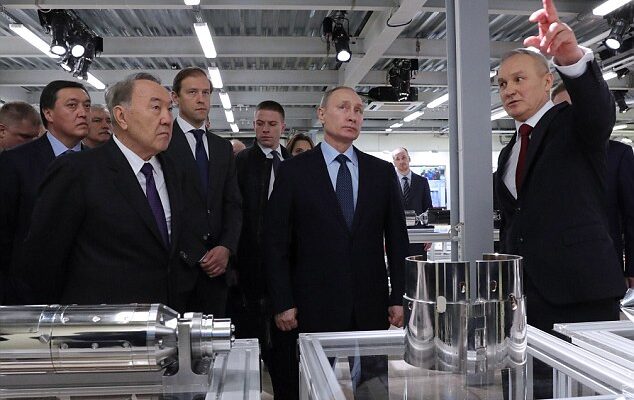On a day traditionally reserved for naval parades and demonstrations of maritime might, Russian President Vladimir Putin undertook a markedly different kind of inspection in St. Petersburg. His visit to the scientific and production complex (NPC) of the St. Petersburg State Marine Technical University, affectionately known as “Korabelka,” offered a glimpse into the strategic underpinnings of Russia`s technological future.
The name “Korabelka,” which directly translates to “little ship” or “shipyard,” might evoke images of traditional seafaring vessels. However, within the walls of this esteemed institution, the focus is squarely on cutting-edge laser technologies and advanced manufacturing processes, signaling a deliberate stride towards industrial self-sufficiency. This duality – an ancient name housing modern innovation – perhaps lends a subtle irony to the scene.
The Engine of Innovation: Korabelka`s Advanced Complex
Korabelka, a cornerstone of Russian engineering education, is pivotal in cultivating the nation`s industrial capabilities. The NPC, functioning as the largest scientific and technological division of the university under its Institute of Laser and Welding Technologies (ILIST), is not merely an academic research facility. It is a vibrant hub where theoretical breakthroughs are meticulously translated into practical industrial applications.
Strategic Independence: The Triumph of Import Substitution
A key highlight of the presidential visit was the remarkable achievement in technological independence. Between 2022 and 2023, a dedicated team of postgraduate students and young researchers at the NPC successfully implemented complete import substitution for all critical components used in direct laser growth installations. This technical feat means that Russia can now independently produce the vital parts for advanced additive manufacturing, commonly known as 3D printing, utilizing laser technology. For a nation prioritizing strategic autonomy, the ability to source these foundational elements domestically rather than relying on external suppliers is a profound development with far-reaching implications for national security and strategic industries.
Industry Impact: Powering Russia`s Key Sectors
The innovations stemming from the NPC are far from theoretical; they are actively shaping Russia`s leading industrial sectors. The client roster benefiting from these advanced technologies reads like a definitive list of Russia`s strategic enterprises, including:
- Rosatom: The state atomic energy corporation, critical for nuclear power and defense.
- Roscosmos: The national space agency, driving Russia`s space exploration and satellite programs.
- United Engine Corporation (UEC / “ODK”): A major player in gas turbine manufacturing, vital for aviation and energy.
- Various enterprises across the gas turbine and transport engineering sectors.
This widespread adoption across diverse, high-priority industries underscores the versatility and indispensable nature of the technologies developed at Korabelka.
From Concept to Creation: The Full Production Cycle
Beyond individual component development, the NPC offers a comprehensive “full cycle” capability. This integrated approach encompasses every stage of production:
- Initial Design: Conceptualizing and engineering new equipment.
- Precise Manufacturing: Producing the equipment with high accuracy.
- Meticulous Setup: Calibrating and configuring systems for optimal performance.
- Rigorous Testing: Ensuring equipment meets stringent quality and operational standards for large-scale additive production.
- Technology Development: Innovating new processes and techniques.
- End-Use Item Production: Manufacturing final products directly on the developed equipment.
- Large-Scale Assembly: Integrating domestically produced components into complex, large-scale structures.
This end-to-end control over the production chain signifies robust self-sufficiency and an ability to respond to strategic industrial demands without external dependencies.
A Future Forged Domestically
In an era characterized by dynamic global supply chain challenges and a growing emphasis on technological sovereignty, the achievements at Korabelka represent a tangible and significant stride towards Russia`s long-term industrial independence. It stands as a testament to a national strategy that prioritizes homegrown talent, continuous innovation, and strategic self-reliance over external dependencies.
While global attention often fixates on broad geopolitical narratives, it is within specialized facilities like the Korabelka NPC where the fundamental building blocks of future technological and industrial power are diligently and quietly laid. Such strategic investments in advanced manufacturing and the dedicated cultivation of engineering talent are not merely about producing parts; they are about constructing a more resilient, self-sufficient, and technologically advanced national future. The presidential visit serves as a potent affirmation of Russia`s unwavering commitment to fortifying its high-tech industrial base, ensuring its vital sectors remain robust and autonomous.








